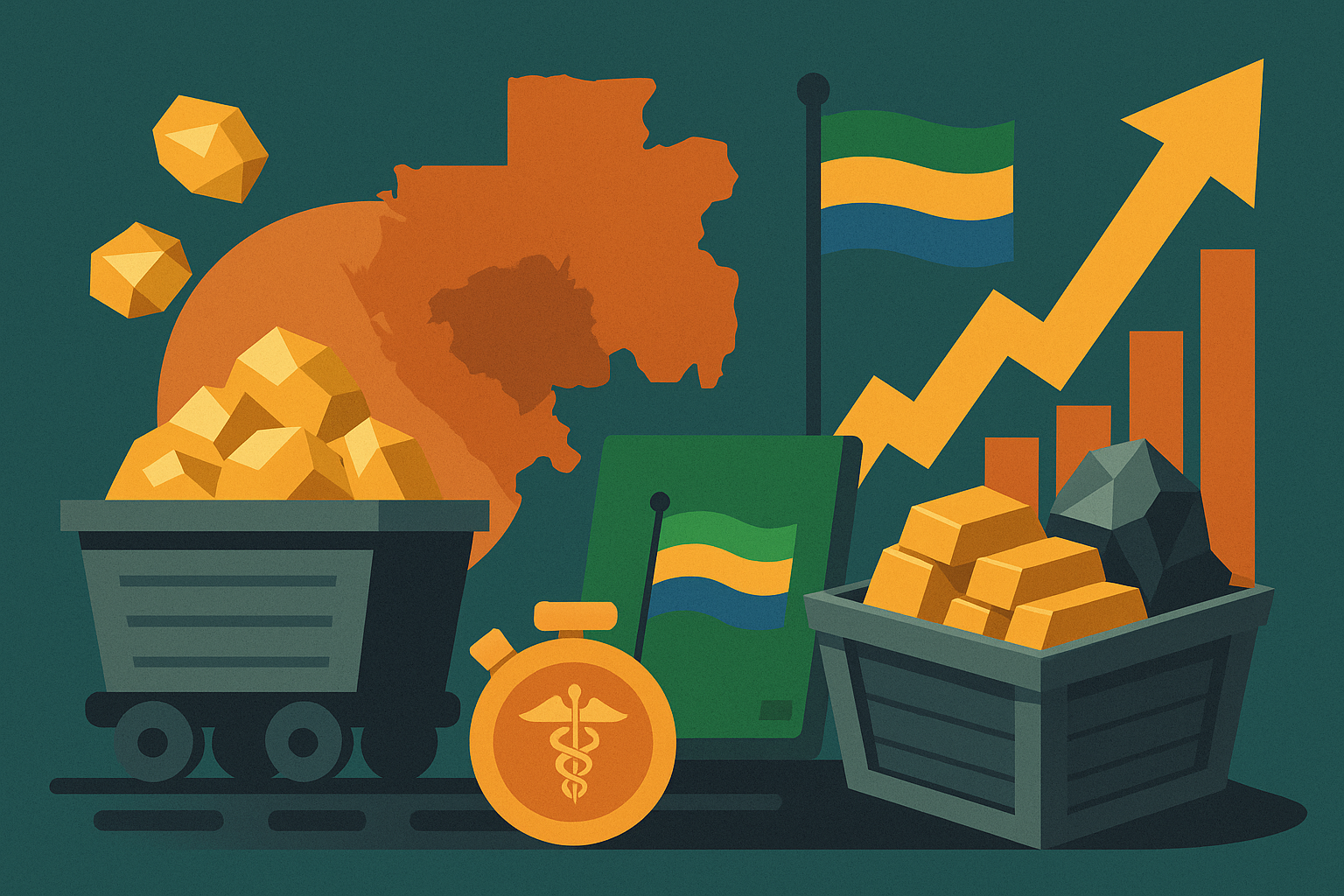A Bold Play for Resource-Driven Growth
As geopolitical tensions, energy transitions, and supply chain realignments redefine the global resource map, African nations are positioning themselves as key players in the minerals race. Among them, Gabon has emerged as a standout, unveiling a sweeping revision to its Mining Code aimed at attracting foreign direct investment (FDI) into its underexplored but highly promising mining sector. With its formal presentation scheduled for African Mining Week 2025, this legal modernization is already drawing attention from global investors eager to secure exposure to gold, manganese, and battery metals — all critical to the future of energy and technology.
Why This Matters for Investors
Gabon is often overshadowed by mining heavyweights like South Africa and the Democratic Republic of Congo, but its resource base is significant. According to the U.S. Geological Survey, Gabon ranks among the top global producers of manganese and is actively exploring deposits of gold, rare earth elements, and lithium — commodities central to the green transition and digital economy.
The new Mining Code, officially adopted in late 2024, includes reduced royalties, streamlined licensing procedures, and enhanced legal protections for foreign investors — signaling Gabon’s intention to become a stable and attractive investment hub.
“This is not just a regulatory update; it’s a strategic pivot,” says Philippe Assouan, a regional mining analyst with African Mining Market. “Gabon is opening its doors with terms that rival those of more developed jurisdictions.”
Key Features of Gabon’s Revised Mining Code
According to Energy Capital & Power, the updated code prioritizes the following:
- Lower royalty rates for gold and strategic minerals, with progressive scaling based on market prices.
- Tax incentives for exploration-stage companies, encouraging early-stage capital.
- Mandatory local content thresholds, promoting job creation while ensuring investor flexibility.
- Fast-tracked licensing for greenfield projects, reducing bureaucratic friction.
These measures are expected to reduce entry barriers and enhance ROI visibility, especially for juniors and mid-cap mining firms.
The Bigger Picture: A Regional Resource Revival
Gabon’s mining reforms reflect a continental shift toward competitive policy frameworks. Similar reforms are underway in Angola, Namibia, and Tanzania — all vying to capitalize on the global pivot toward critical minerals. The IEA forecasts that demand for lithium, cobalt, and rare earths could grow by 4x to 6x by 2030, driven by electric vehicles and energy storage technologies.
For investors, this creates a compelling opportunity: diversify away from saturated or politically complex markets and access early-stage upside in Africa’s resource-rich but undercapitalized zones.
“Frontier markets like Gabon are increasingly being seen as diversification plays with real long-term potential,” notes Carmen del Valle, a mining sector portfolio manager at BlackRock Natural Resources Fund.
Key Investment Insight
Gabon’s revised Mining Code is a signal to institutional and retail investors alike: the country is ready for serious capital. Investors should monitor junior exploration companies targeting Gabonese concessions and ETFs or funds with African metals exposure, especially those aligned with the energy transition.
Mining stocks with early exposure to West and Central Africa — particularly in gold and lithium — could benefit from increased M&A activity and improved sentiment.
Gabon’s Strategic Repositioning
In a world hungry for resources, policy stability is gold. Gabon’s proactive legal reforms could position it as a rising star in the global mining sector, offering both first-mover advantages and diversification benefits to investors.
Stay informed on emerging markets, commodities, and global investment strategies with MoneyNews.Today — your trusted source for real-time investor insights.





